
Difference Between Software Developer vs Full Stack Developer
Sep 18, 2024 7 Min Read 2387 Views
(Last Updated)
The roles within software development are becoming increasingly specialized yet interconnected. Among these diverse roles, the Software Developer and the Full Stack Developer are the most discussed and sometimes misunderstood. Each plays an important role in creating and implementing digital solutions, but their paths, skill sets, and responsibilities often diverge in significant ways.
Understanding the differences between a Software Developer vs Full Stack Developer is important for aspiring developers deciding on their career trajectory and businesses seeking to hire the right talent for their projects. This blog explains these roles, focusing on the distinct tasks, specializations, programming languages, and development stages associated with each.
By exploring these differences, we’ll clarify what sets these two professions apart and help you determine which path aligns best with your career aspirations or project needs.
Table of contents
- Who is a Full-Stack Developer?
- Role
- Key Responsibilities
- Skill Set
- Who is a Software Developer?
- Role
- Key Responsibilities
- Skill Set
- Differences Between Full Stack Developers and Software Developers
- Full Stack Developer vs Software Developer: Which is Better for Me?
- Career Aspirations
- Project Needs
- Individual Skills and Learning Preferences
- Personal Interests and Career Goals
- Conclusion
- FAQs
- What is the primary difference between a software developer and a full stack developer?
- Can a full stack developer handle the same tasks as a specialized software developer?
- Is it better to start as a full stack developer or specialize in a specific area of software development?
Who is a Full-Stack Developer?
A Full-Stack Developer is an IT professional who is capable of working on both the front-end and back-end portions of applications. This means they can handle projects that involve databases, building user-facing websites, or even working with clients during the planning phase of projects.
- Front-End Development: Involves building the visual aspects of a website that users interact with directly. This includes layout, design, and interactivity using HTML, CSS, and JavaScript.
- Back-End Development: Focuses on the server side of applications, dealing with database management, server logic, authentication, and more. This often involves using languages like Python, Ruby, Java, PHP, and tools like MySQL, Oracle, and SQL Server.
A Full-Stack Developer bridges these two areas, making them highly versatile in the web development process.
Role
The role of a Full-Stack Developer includes, but is not limited to:
- Designing User Interactions: They design and develop the overall architecture of web applications, ensuring a seamless user experience.
- Developing Servers and Databases: Responsible for the development and maintenance of server-side logic and database management.
- Ensuring Responsiveness: They ensure that the application functions correctly across different devices and platforms.
- Working Across the Full Stack: From developing front-end website architecture to creating back-end website applications, they handle all aspects of web application development.
- Project Management: Often, they are involved in the conceptualization and planning stages of projects, working closely with clients and other team members to ensure that the final product meets requirements.
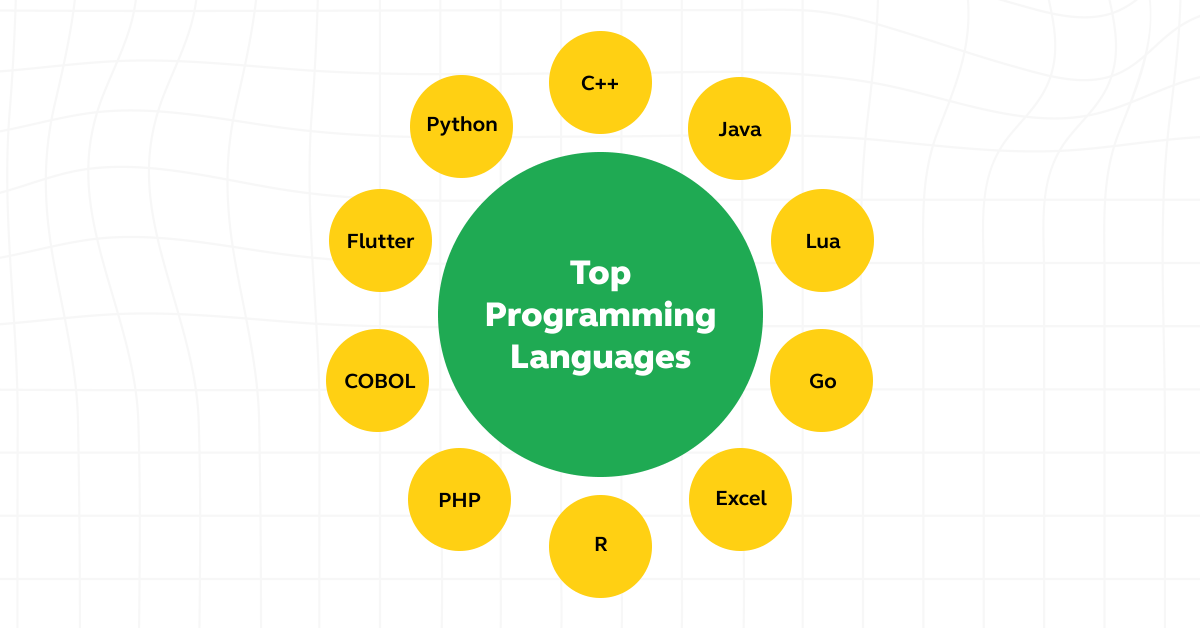
Key Responsibilities
- Building front-end website architecture.
- Designing user interactions on web pages.
- Developing back-end website applications.
- Creating servers and databases for functionality.
- Ensuring cross-platform optimization for mobile phones.
- Ensuring responsiveness of applications.
- Working alongside graphic designers for web design features.
- Seeing through a project from conception to finished product.
- Designing and developing APIs.
Skill Set
A Full-Stack Developer typically has a broad skill set that covers both front-end and back-end technologies. Key skills include:
- Proficient in front-end languages such as HTML, CSS, and JavaScript.
- Familiarity with JavaScript frameworks such as Angular JS, React, and Amber.
- Proficiency in server-side languages such as Python, Ruby, Java, PHP, and .Net.
- Experience with database technology such as MySQL, Oracle, and MongoDB.
- Good problem-solving skills.
- Excellent verbal communication skills.
- Good project management skills.
Also Explore: Top Skills To Become a Full-Stack Developer
A Full-Stack Developer is a versatile professional capable of handling multiple facets of web development, from the aesthetic and interactive elements of the front end to the complex data handling and server-side processes of the back end. Their broad skill set and comprehensive understanding of web development make them important assets to any development team.
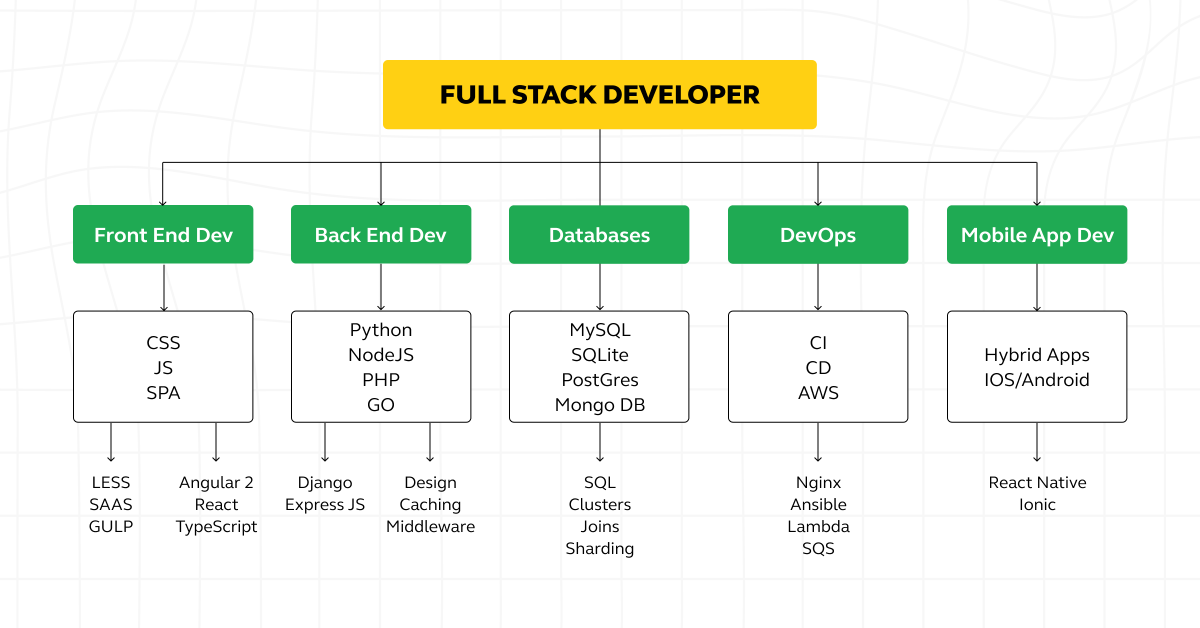
After learning about full-stack developers, let’s now talk about software developers.
Before we move to the next section, if you want to know more about full-stack development, consider enrolling for a professionally certified online full-stack web development course by a recognized institution that can also offer you an industry-grade certificate that boosts your resume.
Who is a Software Developer?
A Software Developer is a professional who designs, codes, tests and maintains software applications or systems. They play an important role in the development of software products, from conceptualizing and designing new applications to improving and maintaining existing ones.
Software Developers are involved in all phases of the software development lifecycle (SDLC), which includes gathering and analyzing user/business requirements, designing software solutions, coding, testing, deploying, and maintaining software applications or systems. They can specialize in various areas such as web development, mobile application development, database management, cloud computing, and more.
Role
The role of a Software Developer can vary widely depending on the type of job and industry. However, some common aspects of their role include:
- Designing Software Solutions: Developing software solutions by studying information needs, system flow, data usage, and work processes.
- Writing and Testing Code: Writing clean, efficient, and well-documented code in the appropriate programming languages. They also conduct testing to identify bugs and ensure software functionality.
- Maintenance and Improvements: Maintaining, expanding, and scaling software applications, as well as improving existing software to meet changing needs or enhance performance.
- Collaboration: Working with other developers, UX/UI designers, business analysts, and project managers to produce software that meets or exceeds expectations.
- Problem-Solving: Identifying and resolving complex software issues through troubleshooting and research.
Also Explore: 7 Powerful Steps to Land a Software Developer Internship
Key Responsibilities
- Analyzing user requirements and defining system functionality.
- Designing and implementing scalable software solutions.
- Writing clean, testable code using appropriate programming languages.
- Testing and debugging software applications.
- Developing technical documentation to guide future software development projects.
- Ensuring that software applications comply with security and data protection standards.
- Staying up-to-date with emerging technologies and development practices.
Skill Set
A Software Developer’s skill set can vary widely but typically includes:
- Proficiency in multiple programming languages such as Java, C#, Python, JavaScript, etc., depending on the specific area of development.
- Understanding of software development methodologies such as Agile, Scrum, and DevOps.
- Knowledge of databases and SQL for managing, querying, and manipulating data.
- Familiarity with software development tools and platforms, version control systems like Git, and continuous integration/continuous deployment (CI/CD) pipelines.
- Strong analytical and problem-solving skills.
- Ability to work effectively in a team and communicate clearly with both technical and non-technical stakeholders.
- A continuous learning mindset to keep up with fast-evolving technology trends.
Software Developers are integral to the creation, maintenance, and improvement of software applications, playing a vital role in nearly every industry. Their technical expertise, problem-solving abilities, and collaborative skills enable them to develop innovative software solutions that meet diverse needs.
Also Read: Software Developer vs Software Engineer: Who is More Important?
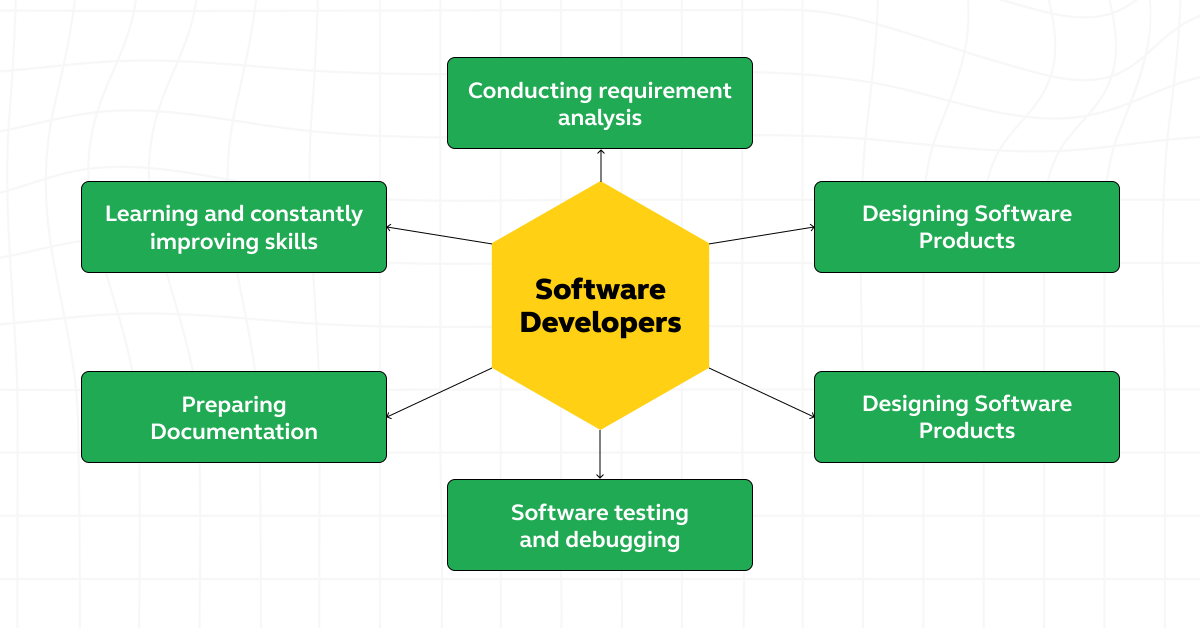
Now that we’ve talked about what a software developer does, let’s look differences between a software developer vs full stack developer.
Differences Between Full Stack Developers and Software Developers
The differences between Full Stack Developers vs Software Developers lie primarily in their scope of work, areas of specialization, and the breadth versus depth of their expertise in the software development field. Both roles contribute significantly to creating and maintaining software applications, but they do so in different ways.
| Aspect | Full Stack Developers | Software Developers |
|---|---|---|
| Core Differences | Full Stack Developers are multi-tool players in web development who can work on both the front-end and back-end of web applications. This comprehensive skill set allows them to understand and contribute to all aspects of web development, from user interface design to server and database management. | Software Developers, on the other hand, may specialize in a particular area of software development, such as front-end, back-end, mobile app development, or system software. Their focus is often on mastering the specific technologies and best practices related to their area of specialization. |
| Tasks and Project Involvement | – Their day-to-day tasks include working across the full stack of technology layers, from front-end user interfaces to back-end servers and databases. – They are involved in projects from conception to deployment, often providing insights into how the front-end and back-end elements of a project will interact. | – Their tasks are more specialized, focusing on their area of expertise, whether it’s developing the user interface, writing backend logic, managing databases, or developing software algorithms. – They might focus on a specific stage of the development cycle based on their role, such as designing software solutions, writing and optimizing code, or testing and debugging. |
| Specializations | Full Stack Developers adopt a “Jack of all trades” approach, which enables them to work on various aspects of development but may limit their depth of expertise in any single domain. | Software Developers often have a specialized focus, which allows them to develop deep expertise in specific technologies, frameworks, or aspects of software development. |
| Programming Languages and Tools | Full Stack Developers typically need to be proficient in: – Front-end languages and frameworks: HTML, CSS, JavaScript, and frameworks like React or Angular. – Back-end languages: Node.js, Ruby, Python, Java, or PHP. – Database management: SQL with MySQL, PostgreSQL, or NoSQL databases like MongoDB. – Version control systems: Git. | Software Developers might use a wide array of languages and tools depending on their specialization, including but not limited to: – Front-end developers: Advanced proficiency in JavaScript, CSS, and HTML along with frameworks like React, Vue.js, or Angular. – Back-end developers: Deep knowledge of server-side languages like Java, C#, Python, and frameworks such as Express for Node.js, Django for Python, or Spring for Java. – Mobile developers: Swift for iOS applications, Kotlin or Java for Android applications. |
| Development Stages | Full Stack Developers are involved in every stage of the development cycle, which gives them a holistic view of project development, from initial concept through development and testing to deployment and maintenance. | Software Developers may focus more on specific stages of the development cycle depending on their role. For example, a developer specializing in software testing might be most heavily involved in the testing and quality assurance stages. |
The choice between a Full Stack Developer and a specialized Software Developer depends on the needs of the project. For projects requiring a broad overview and versatility across the tech stack, a Full Stack Developer is ideal. In contrast, projects requiring deep technical expertise in a particular area may benefit from the specialized skills of a Software Developer.
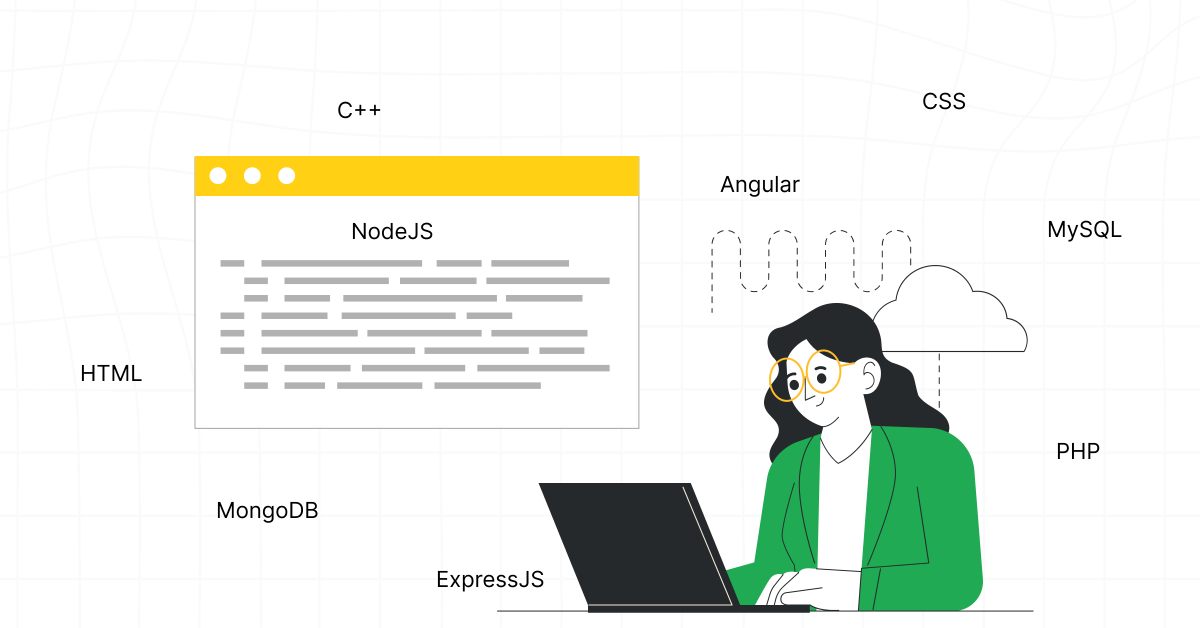
Full Stack Developer vs Software Developer: Which is Better for Me?
Choosing between a career as a Full Stack Developer and a Software Developer depends on several factors, including your career aspirations, project needs, individual skills, and personal interests. Here’s how you can align these factors with each role to make an informed decision:
1. Career Aspirations
Full Stack Developer: If you aspire to understand and contribute to all aspects of web development, enjoy variety in your work, and want to have the flexibility to work on both client and server sides, this might be the path for you. It’s well-suited for those who like to see the big picture of web projects and are interested in entrepreneurial ventures or roles that require a broad understanding of web technologies.
Software Developer: If you are drawn to mastering a specific domain within software development, such as mobile app development, AI, cybersecurity, or database management, and prefer to become an expert in that area, a specialized software development role might suit you better. This path is ideal for those who are passionate about diving deep into a particular technology or problem-solving within a specific context.
2. Project Needs
Full Stack Developer: Best suited for small to medium-sized projects or startups where versatility and a wide breadth of knowledge are required due to limited team size. Full Stack Developers can efficiently handle multiple aspects of a project, from front-end to back-end, making them valuable in environments where team members often wear multiple hats.
Software Developer: Larger projects with well-defined roles or projects that require highly specialized knowledge benefit from specialized Software Developers. In such environments, the depth of expertise can be more valuable than breadth, as complex problems may require in-depth knowledge of specific technologies or methodologies.
Also Read: Best Full-Stack Development Project Ideas
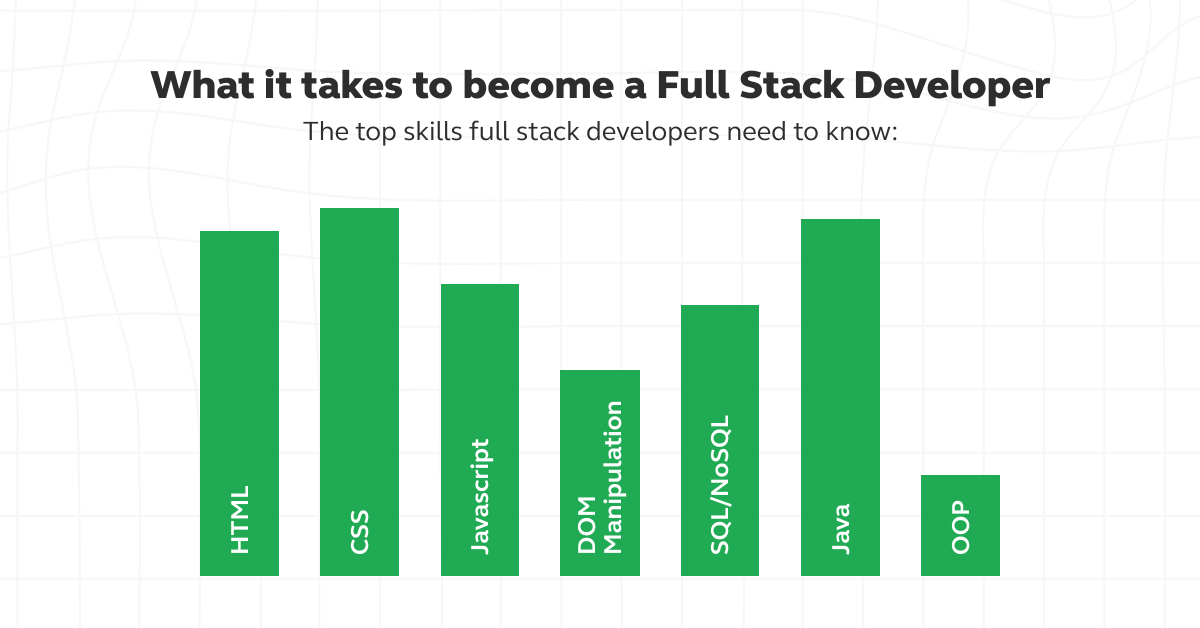
3. Individual Skills and Learning Preferences
Full Stack Developer: This role is suitable for those who enjoy continuous learning and juggling multiple technologies simultaneously. It requires adaptability and a willingness to keep up with a broad range of web technologies as they evolve.
Software Developer: If you prefer to deeply understand a particular technology or field within software development, and enjoy becoming an expert in your chosen domain, specializing may be more fulfilling. This path allows for a more focused approach to professional development and expertise.
4. Personal Interests and Career Goals
Aligning your career with your interests and long-term goals is important. If you’re passionate about the end-to-end process of building and deploying web applications, and enjoy both design and development, becoming a Full Stack Developer could be very rewarding.
On the other hand, if you find certain aspects of software development, like data science, AI, or mobile app development, particularly intriguing and want to focus your career on these areas, pursuing a specialized Software Developer role would likely be more satisfying.
Ready to start your journey to becoming a tech professional? Join GUVI’s Full Stack Development Course and learn coding, design, and development. From front-end to back-end, master the skills needed to build complete web applications from scratch. Enroll now!
Conclusion
Choosing between becoming a Full Stack Developer and a specialized Software Developer depends on your interests, career aspirations, and the nature of the projects you wish to work on. If you thrive on variety and enjoy understanding the full spectrum of web development, pursuing a career as a Full Stack Developer may be fulfilling.
On the other hand, if you are passionate about learning a specific domain within software development and becoming an expert in that area, a specialized Software Developer role might be more suited to you. Both paths offer ample opportunities for growth, learning, and contributing to the ever-evolving field of technology.
Also Explore: Top 24 Full Stack Developer Interview Questions & Answers
FAQs
What is the primary difference between a software developer and a full stack developer?
The primary difference lies in their scope of work and expertise areas. A software developer specializes in a specific area of software development, such as front-end, back-end, mobile app development, or another niche, focusing on mastering the technologies and practices within that area.
In contrast, a full stack developer has a broad skill set that covers both front-end and back-end development, enabling them to work on all aspects of web applications.
Can a full stack developer handle the same tasks as a specialized software developer?
While a full stack developer is capable of handling a wide range of tasks across the development stack, their breadth of knowledge across multiple areas may not be as deep as that of a specialized software developer in their respective domain.
For example, a full stack developer can work on both client-side and server-side code, but a software developer specialized in data security or machine learning might possess deeper expertise in those specific areas due to practice.
Is it better to start as a full stack developer or specialize in a specific area of software development?
The choice depends on your interests, career goals, and learning preferences. Starting as a full stack developer can provide a comprehensive overview of web development, making it a great option for those who enjoy variety and want a holistic understanding of how different parts of a web application interact.
On the other hand, specializing in a specific area of software development from the start can be beneficial for those who have a clear interest in a particular domain.

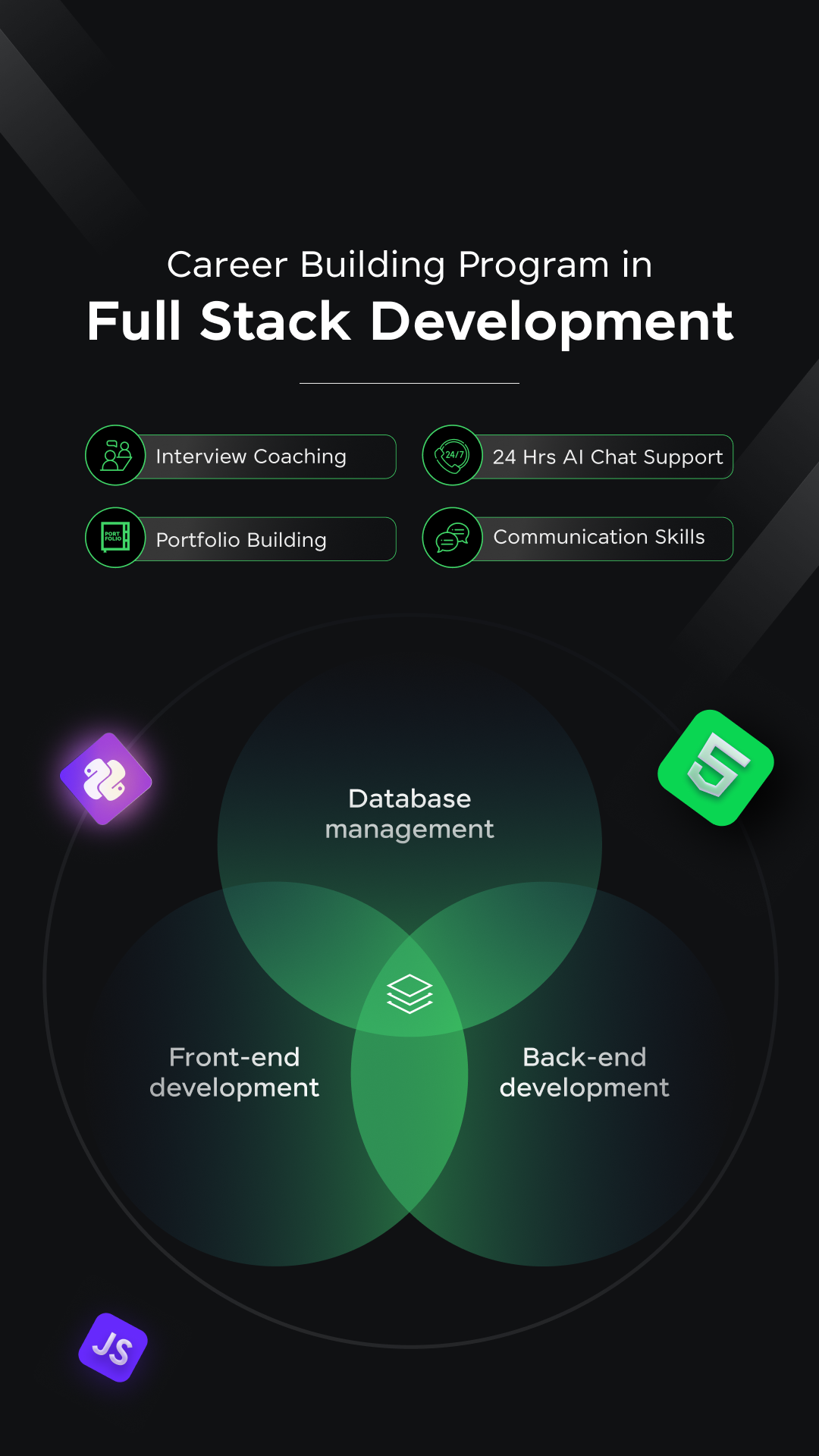








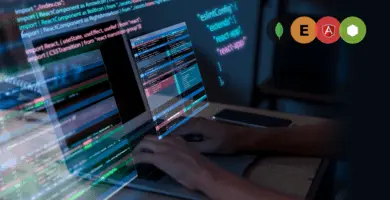
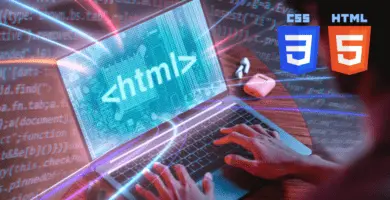








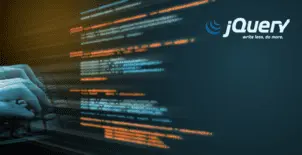
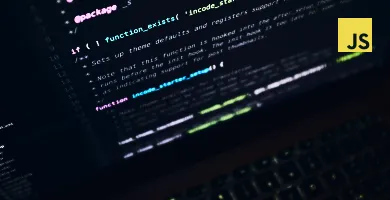
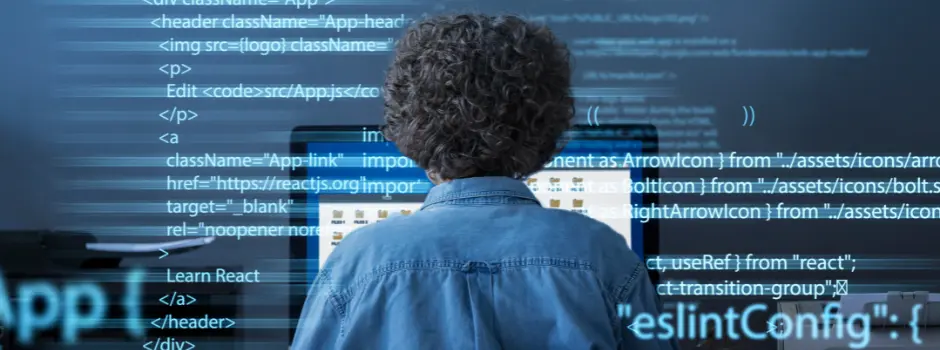
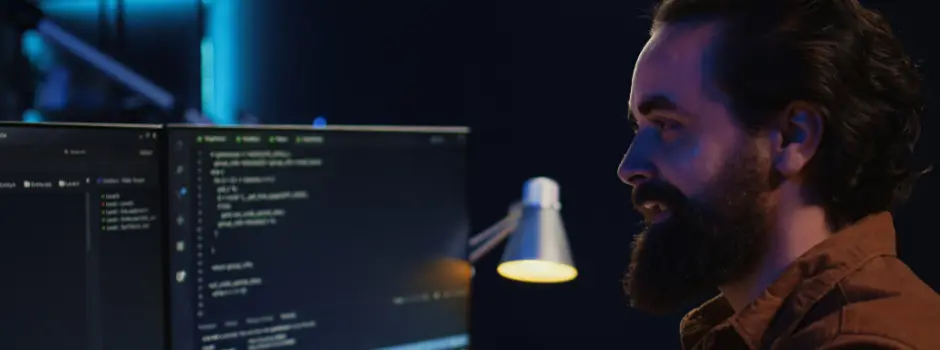

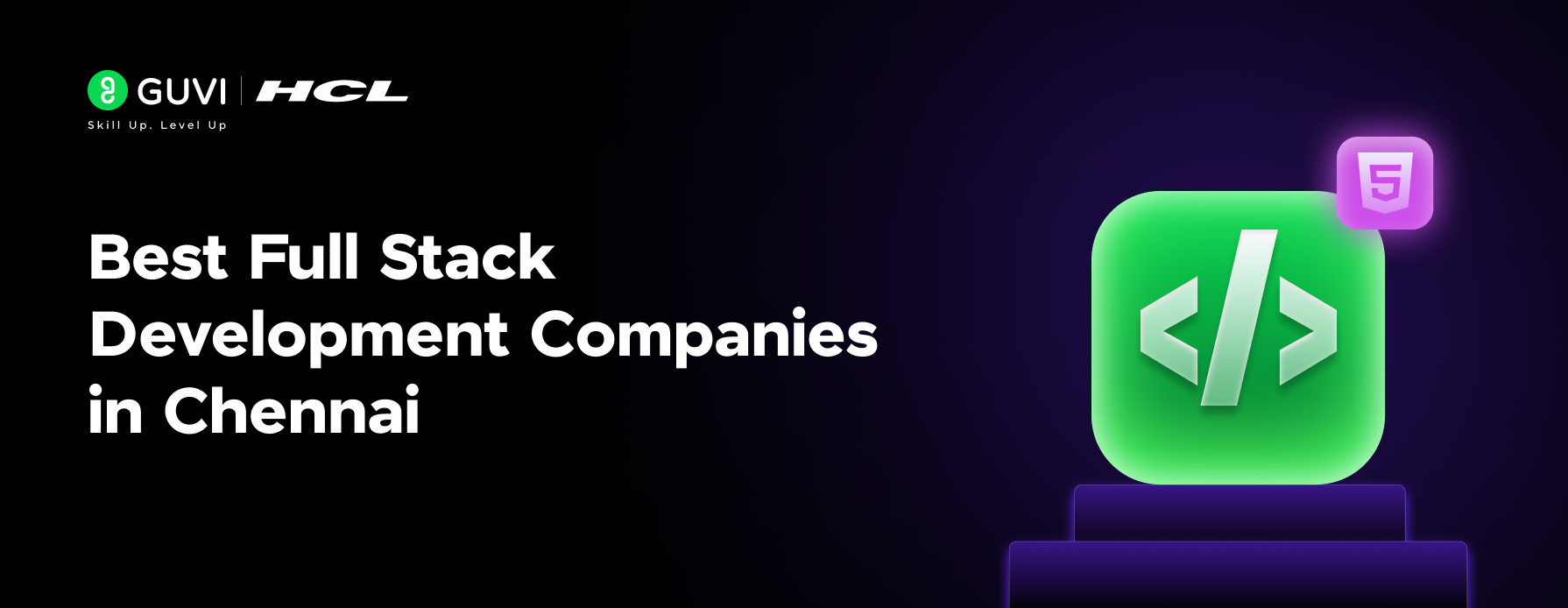


![12 Exciting Software Development Project Ideas [With Source Code] 13 Software Development Project Ideas](https://www.guvi.in/blog/wp-content/uploads/2024/10/Software_Development_Project_Ideas.png)
![List of 10 Unique PHP Project Ideas [With Source Code] 14 PHP Project Ideas](https://www.guvi.in/blog/wp-content/uploads/2024/10/Best_PHP_Projects_Ideas.png)
![10 Unique AngularJS Project Ideas [With Source Code] 15 AngularJS Project Ideas](https://www.guvi.in/blog/wp-content/uploads/2024/10/Top_AngularJS_Project_Ideas.png)
Did you enjoy this article?